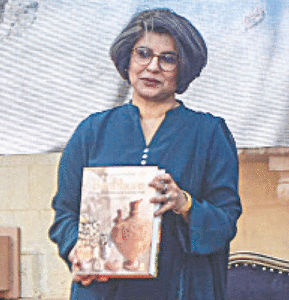By Peerzada Salman
KARACHI, July 28: Who wouldn’t like to have a look at a poem written by Raees Imrohvi or Ibn-i-Insha in their own handwriting? Who wouldn’t be interested in a 1942 copy of Dawn, headlined in all caps, screaming the need for withdrawal of the British from India? Who wouldn’t like to go through a series of documents related to the 1857 mutiny, entailing some intriguing details?
Sadly, the answer to the three questions would be: not many. It goes to show the kind of intellectual bankruptcy that modern-day Pakistan has to put up with.
The Sindh Archives Department, Government of Sindh, has been filling its drawers, shelves and cupboards with valuable documents, manuscripts, books and files. Established in 1976, the department has come a long way, going through troughs and peaks vis-à-vis administrative issues. Things are relatively settled now, save for the matter regarding a block of building that was initially meant to be an auditorium. Work on that block is yet to finish and according to the special secretary for information and archives department, Iqbal Nafees Khan, if that block hadn’t been affected by delays, he would have set up a freedom gallery and transferred a section of the always-burgeoning archival documents there.
Giving a brief historical background to the department, Mr Khan says: “It was Bartle Frere, commissioner in Sindh, who started collecting records in the first half of the 19th century. He was a man who had a deep interest in development projects. Frere would always crib and grouse about lack of funds, so much so that he was labelled ‘importunate widow’.
“We’ve been constantly collecting precious scripts. It’s not an easy job. For example, we’ve recently had some really valuable stuff from Prof Shariful Mujahid. It’s a delightful mix of pamphlets, documents and newspaper clippings. The thing is that we don’t have enough people to sort out the thousands of newspaper snippets. We have also obtained from journalist Shafi Aqeel nazms and ghazals by legendary Urdu poets in their own handwriting. Then in the near future we wish to establish a sound and picture archives section as well which will require special attention,” says Mr Khan.
Visiting the Sindh Archives Complex demands passion and patience in equal measure.
There’s a constantly expanding treasure that needs undivided attention. If you’re interested in Sindh High Court records, a full day at the complex might not suffice. If you want to know more about the 1857 mutiny, you’ll get hooked to the user-friendly, digitised software that the department has developed. One click and the uprising will unfold before your eyes. Talking of the events of 1857, there’s an extremely interesting document titled Shabha Ram’s Prayer in which Hindus and Sikhs are asked to pray for the success of British troops during the mutiny.
“The software that we have developed for (1,200) manuscripts is multilingual and is in five Oriental languages. One of the problems that we face is of prioritising, that is, which particular manuscript to take care of first, etc. To tackle that issue, we’ve formed a committee that will lay out principles for prioritising. Our website is also up and running, but we need to make our own data centre because there are certain limitations with the current web host,” says Mr Khan.
Among the recently obtained old records by the department are the 5,429-old official or government publications, files and books of, or belonging to, Sindh acquired from Punjab.
The collection (gazetteers, administration reports, conference proceedings, censure reports, assembly debates and memoirs) was shifted to Punjab during the One-Unit period.
There’s no less material for literature buffs at the complex. From the masnavi Daqaequl haqaeq by Ahmed Rumi (gifted to Emperor Shahjahan) to Sirajjudin Zafar’s poignant couplets to Faiz sahib’s black & white photo with a Daghistani farmer… the archives department is fraught with priceless items. It fills you with elation when you read the following two lines written in blue ink by Sirajuddin Zafar:
Mahvishon say khush-khayali keejyey
Phir koee bay-aitadali keejyey
Let’s get back to a lesson in history, and that too not of distant past. Prof Shariful Mujahid’s collection of news clippings has a fair chunk of old pre-partition editions of Dawn. One on Aug 2, 1942 is headlined: DEMAND FOR BRITISH WITHDRAWAL— Culminating Point in Gandhi’s Policy of Blackmailing. A supplement on Aug 15, 1947 has the headline DAWN PAKISTAN SUPPLEMENT. They’re worth reading over and over again… if you have the time for it.
“What we’re doing will perhaps benefit the future generations more than the current one,” says Mr Khan.













































Dear visitor, the comments section is undergoing an overhaul and will return soon.